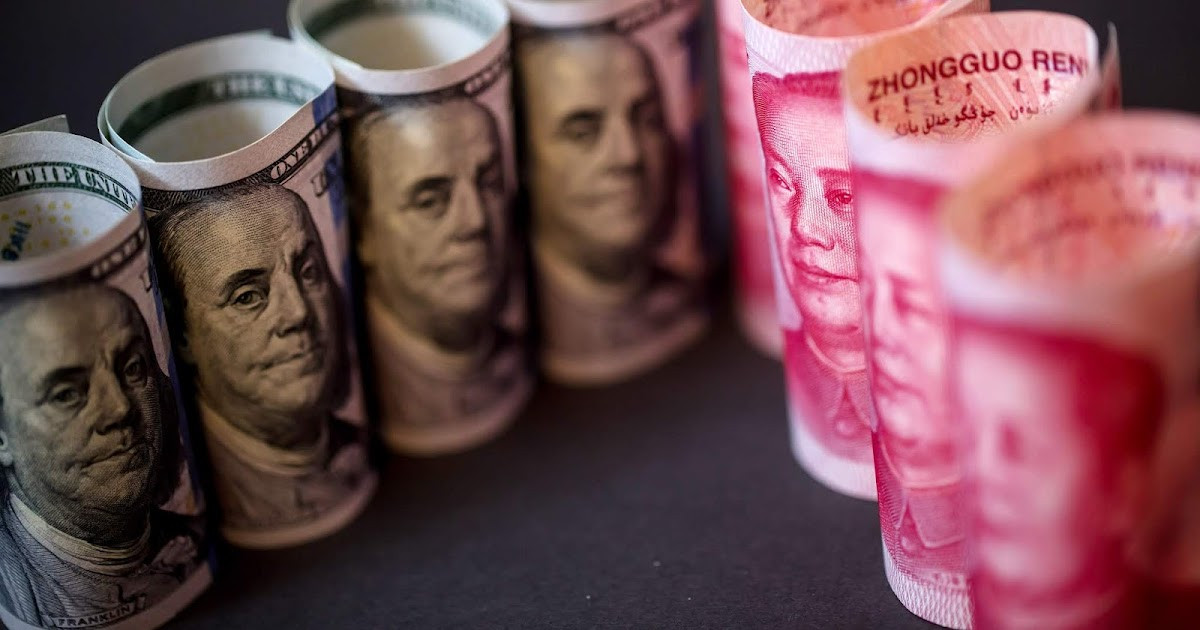
The US dollar is going through hard times, especially amid the geopolitical crisis. Due to the aggressive sanction policy of the US government, many countries are considering alternatives to the US dollar. The main rivals are the euro and the yuan that has been trying to take the shine of the US currency for some time.
The US dollar has been supported by oil for a long time as international settlements for oil are carried out in dollars. However, now, other currencies are trying to dethrone the US dollar. Apart from the euro, the yuan is striving to become the new leader. The US authorities are concerned about the high probability of switching to the yuan in payments for commodities.
Many long-term investors were caught off guard when the Saudi authorities announced the possible oil sales to China in the yuan. As a result, the importance of the yuan on the world market was again on the agenda. At the same time, the question of the status of USD as a global reserve currency is still relevant for investors. Market participants once again considered the likelihood of the yuan becoming the leading currency. Nevertheless, investors still want to see the US dollar as a reserve currency.
This week, the greenback has asserted strength versus its main rivals, especially the euro, the yuan, and the yen. Its rise was facilitated by an increase in US Treasuries. Government bond yields grew following Jerome Powell's statements. Earlier, the Fed chair hinted at a more aggressive stance on monetary policy to curb galloping inflation. If necessary, the regulator will hike the key rate from 25 to 50 basis points.
The US dollar advanced amid such hawkish comments. Analysts at Rabobank believe that mounting demand for the safe-haven assets and the Fed's readiness to tighten monetary policy will be the main catalysts for a further rally of the US dollar. However, its long-term rise may be hammered by significant changes in the global market.
For half a century, the US dollar's robust status as a reserve currency has been dependent on the strength of the petrodollar. This is why commodity prices greatly affect the status of the greenback as a global reserve currency. Most countries still use the US currency in trading operations and keep part of their exchange reserves in USD. However, a potential change in Saudi Arabia's policy regarding international payments for commodities may lead to the strengthening of the yuan in the long term. Besides, the greenback's position in the global financial market has been shaken by the coronavirus crisis and geopolitical conflicts.
The vast majority of economists reckon that the current actions of the United States have undermined the US dollar. Many countries are looking for alternatives for the US dollar because of the US aggressive rhetoric and the imposition of sanctions as leverage. Recently, the US has often used its currency to punish those that dare disagree. According to analysts, Washington has crossed the line by introducing economic sanctions for any reason. Therefore, central banks are ready to diversify their foreign exchange reserves, reducing dependence on the US currency. This is why some FX experts are betting on a transition to the yuan. Saudi Arabia is ready to follow this path, using the Chinese currency in oil settlements.
These are the main threats to the greenback as a global reserve currency. "Central banks are beginning to ask questions. They are wondering if reliance on the dollar and putting all their eggs in one basket is a smart idea," Gal Luft of the Washington-based think tank said. "There is a realignment in the world's energy, financial and geopolitical systems, and the emergence of a new world order. The transition is never a happy one. It's always painful, but that's the only way that the world can transform from one world order to another," he pointed out. Goldman Sachs forecasts that the yuan will overtake the yen and pound and become the world's third-largest reserve currency by 2030.
In the medium term, the US dollar is unlikely to lose its reserve currency status. Some analysts compare the greenback to a train that is trying to gain speed but geopolitical and financial problems put sticks in its wheels. Nowadays, the US dollar's share in the foreign exchange reserves of the world's central banks is 60%. It also accounts for 90% of foreign exchange transactions worldwide. As for payments in Chinese currency, their share in the global market is only 3%. The yuan accounts for 2.7% of the world's foreign exchange reserves.
Currently, the US economy is the main locomotive of the global economy. It is far stronger than any other economies. US Treasuries remain one of the best ways to hedge capital. At the same time, the US dollar maintains its status of the main safe-haven asset. The medium-term prospects of the greenback are still influenced by geopolitical events, especially military conflicts. However, they are unlikely to affect the US dollar significantly. Thus, now, there is no alternative to the US dollar. However, recent events may change the current situation. Trading commodities for national currencies that replace dollars in mutual settlements is the first step to a new financial system.
 English
English 
 Русский
Русский Bahasa Indonesia
Bahasa Indonesia Bahasa Malay
Bahasa Malay ไทย
ไทย Español
Español Deutsch
Deutsch Български
Български Français
Français Tiếng Việt
Tiếng Việt 中文
中文 বাংলা
বাংলা हिन्दी
हिन्दी Čeština
Čeština Українська
Українська Română
Română

